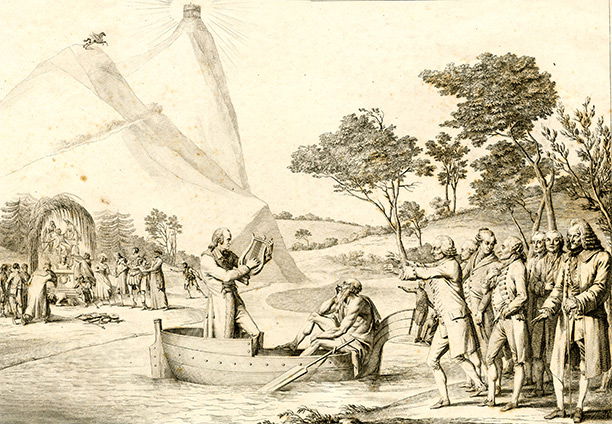Grétry’s Lament
Reaction to the death of André-Ernest-Modeste Grétry far exceeded the fame of the Belgian-born composer during his lifetime. The cult-like status he achieved beyond the grave reflects the power of music in turbulent times and reveals new attitudes to mourning, says James Arnold.
 For Napoleonic France, the autumn of 1813 was a time of ill omen. The armistice of the summer had ended and on the battlefields of Germany the emperor was dithering in the face of a well-armed and determined coalition of enemy nations. Even before the cataclysmic battle of Leipzig in mid-October the citizens of Paris, demoralised by the military disasters of 1812 in Russia, the economic crises of the previous two years, forced conscription, food shortages, punitive taxation, industrial paralysis and banking collapse, feared the worst. The Duchess d’Abrantès, a well-connected diarist, recalled the paralysis of those anxious weeks.
For Napoleonic France, the autumn of 1813 was a time of ill omen. The armistice of the summer had ended and on the battlefields of Germany the emperor was dithering in the face of a well-armed and determined coalition of enemy nations. Even before the cataclysmic battle of Leipzig in mid-October the citizens of Paris, demoralised by the military disasters of 1812 in Russia, the economic crises of the previous two years, forced conscription, food shortages, punitive taxation, industrial paralysis and banking collapse, feared the worst. The Duchess d’Abrantès, a well-connected diarist, recalled the paralysis of those anxious weeks.





